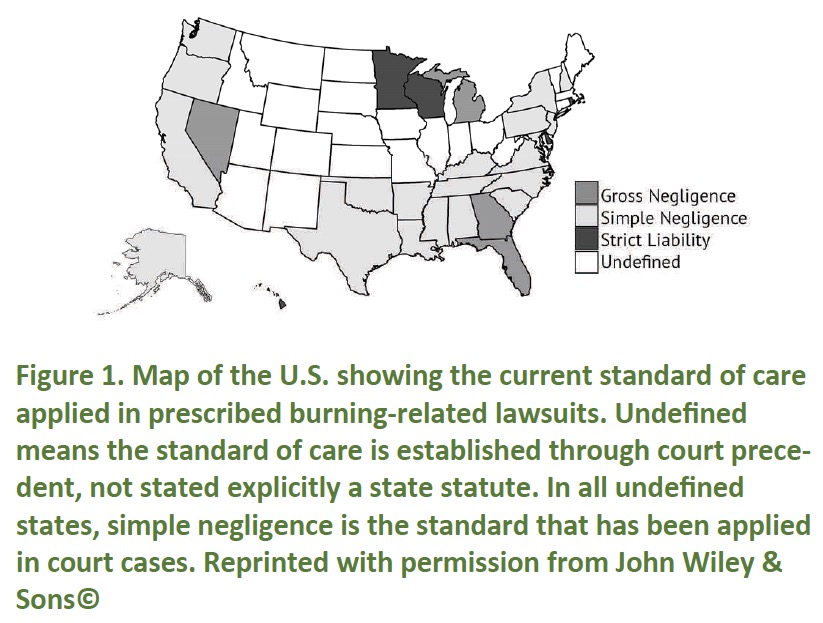Above: Pleasant Valley Prescribed fire in South Dakota, March 10, 2016. Photo by Bill Gabbert.
Exposure to liability worries many land managers when they are considering using prescribed fire as a management tool. Knowledge of the facts is one of the first steps toward lessening that concern.
Carissa Wonkka of the University of Nebraska-Lincoln has written an article for the Great Plains Fire Science Exchange that discusses fire liability and standards of care. You can read the entire article here. Below is a very brief excerpt.
…In the United States, state open burning statutes define the standard of care owed to the public by burners. In a lawsuit, a burner will be found liable for damages resulting from their fire or smoke if they have not met the standard of care prescribed by their state statute. If a state has not developed a statute specifically related to open burning or prescribed burning, judges will apply the standard of care established by previous prescribed burning cases in their state. Three different standards of care have emerged for prescribed fire practitioners: strict liability, simple negligence, and gross negligence.
Strict liability is the most stringent standard of care for those using prescribed fire, with only five states (Hawaii, Delaware, Rhode Island, Minnesota, and Wisconsin) applying this standard in prescribed fire civil cases. Under a strict liability standard, a court would hold burners liable for any property damage caused by an escaped prescribed fire, regardless of the action of the burner. This standard is more often established through case law, not explicitly stated in the statute. Some states have language that suggests strict liability will apply even though the statute does not expressly state this. Hawaii, for example, makes escape of fire beyond the established burn perimeter evidence that, if uncontested, is sufficient to prove willfulness, malice, or negligence. This means that a plaintiff in a case against a burner could win a lawsuit simply by showing that the ϐire escaped. The burden of proof would fall on the defendant to prove they were not negligent in the events leading up to the escape that caused the damages…
For more information on burning regulations by state: KS, MO, MT, ND, NE, OK, SD, TX, WY. The Great Plains Fire Science Exchange has more fire science resources at http://www.GPFireScience.org.


